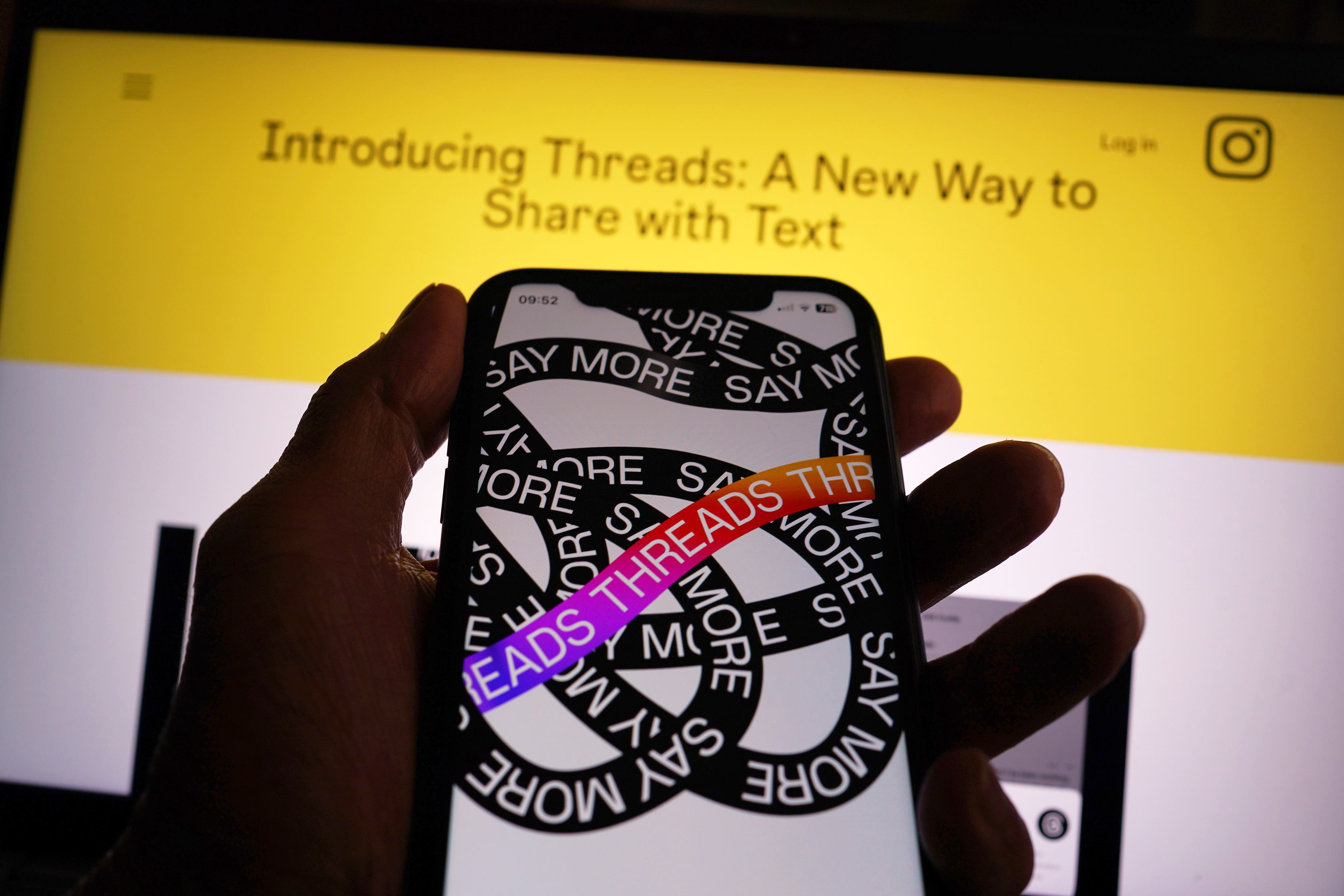Threads was supposed to be Mark Zuckerberg’s Twitter killer. A year on, what happened?
Meta’s newest platform came amid endless predictions of the demise of Elon Musk’s Twitter/X, but it is still limping on, so how close is Threads to taking its place?


When Elon Musk bought Twitter in October 2022, the platform’s obituaries were already being written. Even before the purchase went through, many had suggested that it would swiftly be on its way out.
Its likely killer soon came to be seen as Threads. It did not launch for half a year after Musk's purchase – this month, it turns one year old – and it joined a busy market for Twitter alternatives, which also included Mastodon and former internal Twitter project Bluesky.
But immediately it became the most prominent alternative, helped in no small measure by its backing from Instagram parent company Meta and its integration with the main app.
Yet Twitter, with a new name X and a new brand as Musk's personal plaything, is still around. It is battered and bruised – many advertisers have left the platform, and were personally and publicly antagonised by Musk for doing so, and its financial situation is said to be perilous – but it has limped on.
And Threads may have overtaken X in terms of daily active users, but it is yet to dethrone it in cultural significance. Even today, celebrity announcements and breaking news tend to flow through X, often from users who have previously publicly disavowed it. Mark Zuckerberg's Twitter killer seems unable to make the final coup de grace.
From the start of Threads, it was clear that Meta didn't have to do much to win; people were fleeing from Twitter in their droves, desperate for a new platform that hadn’t been tainted by Musk’s association with it. And so when Threads was launched – then a barebones platform, lacking in features and with clear inspiration from Twitter – the users streamed in.
It is not the first time that Meta has borrowed heavily from a competitor that it has ended up taking users from. Instagram may now be forever entwined with its “stories” tool, but that was originally a Snapchat feature; likewise, “reels” was an attempt to copy the work of TikTok. The sheer scale of Meta’s platforms and the apparent ruthlessness of its executives mean it is able to take a competitor’s feature and turn it quickly into its own success.
With Threads, that worked decisively: within five days, it had gained 100 million users, and the numbers kept going up. People and companies rushed to snap up their handles and start posting. It became the fastest-growing app in history (a record that had only just been set by ChatGPT). From the beginning, Instagram had clearly made a decision to mark itself out from Twitter in part by promoting positive and brand-friendly content, which meant that it was clear of the problematic posts on Twitter but also felt somewhat sanitised.
Perhaps partly as a result of the unfinished nature of the app and the saccharine posts that were found on it, that growth did not stick around. Launched in early July, numbers were rapidly falling by the end of the month.
But Meta may have stemmed that drop. Last week, Meta boss Zuckerberg announced that the app has more than 175 million active users – showing that it was still growing, albeit slower. What was notable, however, is what he didn’t say: Meta has not announced daily active users for Threads, despite doing so for its other platforms, which might indicate that people might drop in through the month but aren't doing so each day.
That would be in keeping with the fact that Instagram promotes Threads content heavily, putting it alongside traditional picture posts in a way that is meant to bring users out of that platform and onto its new one. Users are invited to switch between them in a way that suggests that Threads is still thought of as a complement to Instagram, not an alternative to it.
Even a year on, Threads is still not finished. There is no advertising on the platform which means that Meta is operating it at a loss, and it only launched in Europe relatively recently, after a dispute over user privacy and data storage.
But that is how apps do tend to grow, as well as die: slowly and quietly, rather than in one big bang. The long trail of social media sites that Twitter/X could join if Threads does ever manage to kill it off is not made one of apps that disappeared overnight – rather ones that, from LiveJournal to Myspace, and maybe even these days Facebook – people just stopped logging into one day, probably as much out of apathy as antipathy.
Join our commenting forum
Join thought-provoking conversations, follow other Independent readers and see their replies
Comments
Bookmark popover
Removed from bookmarks